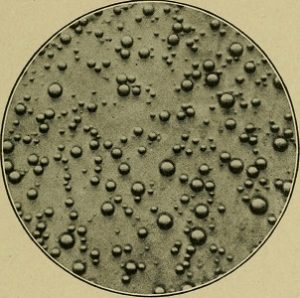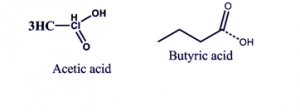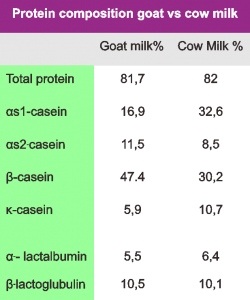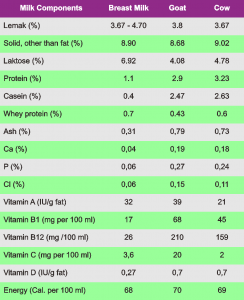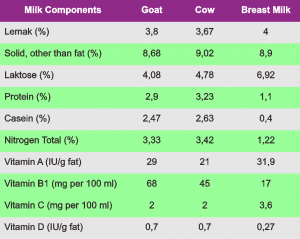What do you know about the goat’s milk?
Perhaps, if you are looking for information about goat milk, the first time the information obtained is the benefit. That is very much information about goat milk benefits.
Goat milk is better than cow’s milk, goat’s milk can cure diseases A, B, C and so on. There is also a mention that goat milk is good for this and that.
Lots of that already mentioned.
Then, is that all true?
Most likely, all the information is true. But, we also have to start smarter that not a bit of information is provided with slightly exaggerated.
Indeed, goat’s milk has been known to be of better quality than cow’s milk and sheep. I say, the second best milk after the breast milk.
The price on the market is also slightly more expensive than milk from other livestock products.
However, more expensive prices do not mean that the goat milk is better.
The amount of milk in the market is dominated by cow’s milk.
Unlike the case with goat milk, where the amount of production is less. Thus causing production costs to be high.
Therefore, a small amount in the market, making it more expensive. Economic laws will apply in this regard.
Not limited to goat’s milk but to other economically valuable products.
If you have to choose, choose what milk?
Before making a choice, there is nothing wrong if we look furthermore why we should drink a milk?
Because milk is a good drink for the body. Right?
It contains many vitamins, minerals, calcium, protein, carbohydrates and other nutrients that are good for the body.
By incorporating nutritious foods and drinks, it will help the body to become healthier. Including milk.
Then, why should be discriminated between this milk and thus milk?
If all the milk is nutritious and good for the body, it should not have to make a caste to milk that milk from these cattle is better and that’s no better.
Problems that arise later
Apparently, not everyone can drink fresh milk. More than that, there are even allergic to milk from a particular livestock. For example allergies with cow’s milk.
Someone who is allergic to cow’s milk, but sometimes not allergic to goat’s milk.
Such things are then grounded for a further study of goat’s milk.
And so far, goat’s milk is the best choice that it is better and healthier than milk from other livestock.
What makes goat milk healthier?
If you think that goat milk is better because of its higher nutritional content, that’s not quite right.
In fact, the nutritional content of goat and cow milk is almost equivalent. Each number of nutrients there are more and there are fewer.
At the bottom of this article, there is a comparison data on nutritional content of goat’s milk and cow’s milk.
Therefore, I give other reasons that make goat milk healthier.
Starting from here, we will be a little more scientific. I will try to convey it simply and hopefully it’s easier to understand.
To explain what makes goat milk healthier, I will start from the following things:
- The composition of the goats milk fat formation.
- The number of short chain fatty acids.
- Level of alkalinity and acidity of milk.
- Digestibility of milk proteins.
- Absorption of milk micronutrients.
1. Goat milk fat formation
In the milk, there is fat. Fat when viewed with a microscope, it will look like very small clumps (droplets). In English terms is called fat globule.
To help see this, the picture below is the illustration.
Microscopically, the milk fat clumps and looks like a lot of bubbles.
Apparently, the size of the bubble is different between goat’s milk and cow’s milk. Its size in cow’s milk is bigger than goat’s milk.
So what benefits?
The benefit is, with the smaller size of fat clots, the goat’s milk becomes more homogeneous.
Examples of homogeneous are as follows: Two glasses of hot water, one filled with a spoonful of sugar and the other filled with coffee.
Each is stirred until dissolved. Surely, the sugar is not sediment whereas coffee, there is. That means the sugar solution is more homogeneous.
Because the sugar dissolved in hot water will dissolve into particles of small size and evenly distributed.
Unlike with coffee, there is a dissolved part and some are not. The soluble part is indicated by the color of black hot water.
While the coffee is not dissolved, down to the bottom and become sediment.
Then, if goat milk is more homogeneous, what does it do?
The benefit is goat’s milk becomes easier to digest.[1]
2. The number of short chain fatty acids
Fat is composed of a variety of molecules. In fat, there are fatty acids, vitamins, sterols, monoglycerides, diglycerides and others. Sorry, it’s a bit chemical.
We will focus on the fatty acids only.
Fatty acid molecules are short, medium and long. This term is actually better known as short chain, medium and long chain.
In goat’s milk, the amount of short and medium-chain fatty acids is higher than cow’s milk.
Examples of some short and medium chain fatty acids are triglycerides, carnitine, glycerol ether, butyric, kaproic, kaprilik, lauric, miristic, palmitic, linoleic and alpha linoleic acid.
In one study mentioned that the content of short-chain fatty acids – a medium in goat’s milk, 40% higher than cow’s milk. Other studies even mention that the content is even 62% higher.[2]
The benefits of it all are as follows:
In addition to glucose, the energy source for body cells is fatty acids. However, only short and medium chain fatty acids can be used as energy sources.
This does not mean that cow’s milk can not be used as a source of energy. Cow’s milk can.
However, the content of short-chain fatty acids – the medium in goat’s milk is higher. So goat milk is better quality.
In addition, the benefits are many more. But with a more complex explanation.
Examples are high content of unsaturated double acids, n-3 & n-6 and conjugate linoleic acids, contributing to cardio protection and cancer activity.[1]
3. Level of alkalinity and acidity of milk
This connection is with food that is entered and digested by the body. The digestive reaction is acidic or alkaline.
To find out more about this alkaline food information, you can look it up on google.
Because these sour and alkaline foods are not confined to milk alone. You can look it up with the keyword alkaline diet.
Cow’s milk is acidic while goat’s milk is alkaline. Not that cow milk dipped with pH meters showed low pH, not that.
This means that when drinking cow’s milk, the reaction to digest cow’s milk is acidic. For some people who have stomach acid problems, maybe this will not comfort the body.
Goat’s milk is alkaline. But the goat milk that is dipasturized, becomes slightly more acidic.[3]
4. Dairy of milk protein
Goat milk protein is easier to digest than cow’s milk protein.
The milk protein digestibility level, influenced by the content of casein and whey protein.
Milk proteins, whether goat’s milk or cow’s milk consist of casein and whey protein. The amount of casein in milk protein is 80%. The rest is whey protein.
If you want to know more about casein and whey protein, please visit the following link, https://en.wikipedia.org/wiki/Kasein.
If you want more detail, casein consists of αs1-casein, αs2-casein, β-casein and κ-casein. While whey protein consists of β-lactoglubulin and α-lactalbumin.
Then, what composition makes goat milk protein more digestible than cow’s milk?
Goat milk has lower αs1-casein and αs2-casein higher than cow’s milk.
Below is a comparison table of milk protein composition between goat milk of Granadina goats and cow milk from Holstein Friesian cows.[1]
The more the amount of αs1-casein in the milk protein, the longer it takes to digest it.[4]
In other journal publications also mention that goat’s milk faster digested by the body. The body takes about 20 minutes to digest goat’s milk. While cow’s milk, it takes about 2 – 3 hours to digest it.[6]
5. Absorption of milk micronutrients
Some minerals in goat’s milk are more easily absorbed and utilized by the body.
From some studies mentioned that drinking goat’s milk can increase the amount of calcium in bone. Not only that, the absorption of iron and copper minerals is also more optimal.
In addition, drinking goat’s milk may further improve the efficiency of hemoglobin repertoire rather than cow’s milk.
The weakness of goat’s milk
Here, I do not really make superior to goat’s milk. Because even though goat milk has an advantage over cow’s milk, it still has flaws.
So also with cow’s milk, it also has advantages that are not present in goat’s milk.
Cow’s milk contains vitamin B12 and more folic acid than goat’s milk.
Generally, the American Academy of Pediatrics does not recommend the use of goat milk products in infants under one year because it can cause irritation of the intestine and anemia.[6]
Comparison of milk nutrition
We must think that the color of milk is all the same, that is white. When viewed in more detail, actually not.
When compared with cow’s milk, the color of goat’s milk and sheep are whiter. While the color of cow’s milk a little more yellowish.
The yellowish color in cow’s milk is caused by the presence of carotene in it.
The smell of goat milk is stronger than cow’s milk. Why can?
This is due to the presence of fatty acids in goat’s milk.
When milking, the fatty acids present in the milk will be released. This is why the smell of goat milk becomes more distinctive.
Goat’s milk is more alkaline than cow’s milk. Cow’s milk is slightly more acidic.
Therefore, goat’s milk becomes more suitable for people with acidic food problems.
Regarding the alkaline properties in this milk I have discussed on the top earlier.
Comparison of nutritional content between cow’s milk, goats and breast milk, I will give in the table below.
Comparison table of milk content[5]
From the table above we can get information that the difference between nutritional content of goat’s milk and cow’s milk is not very significant.
Actually, the nutrient content of sheep is even higher than cow and goat milk. The total protein of sheep’s milk is about 6%.
Regarding this sheep milk I will discuss in another article.
From different journal publications also mentioned that the ratio of nutritional content between cow and goat milk is not much different.
The table, I give below:[6]
Goat milk benefits in Health
Digestive disorders (malabsorsi disorder)
Malabsorption diorder is a digestive disorder in absorbing nutrients from a food.
Nutritional content such as carbohydrates, proteins, minerals and vitamins are not well absorbed by the body.
This can bring the body into nutritional deficiencies or malnutrition. If conditions like this continue, then it can cause worse.
More about malnutrition can read the information on alodokter.com. Here’s the link.
http://www.alodokter.com/malabsorbsi-makanan.
The cause of them can be due to disease and genetic. One of the recommended therapies is to regulate the diet.
The connection with goat’s milk is goat’s milk has a very high level of digestibility.
From the research that has been done, shows that consuming goat milk can increase the absorption of nutrients such as fats, proteins and minerals.[1]
Maybe goat milk can help people with digestive disorders, because goat’s milk is very easy to digest by the body.
However, to consume it, still have to consult a doctor first.
Inflammatory bowel diseases (IBD)
IBD is a chronic inflammatory disease of the lower intestine. The cause is thought to be due to the body’s immune system reaction to the digestive tract.
IBD disease there are two kinds, namely crohn and colitis.
If chohn can attack the small intestine, large intestine, even all the digestive tract from the mouth to the anus.
If colitis, only attack the part of the large intestine. The large intestine will become inflamed and injured. The result can be pain, dysentery and fever.
More information about this IBD can read the article on this blog and web:
http://ismirayanti.blogspot.co.id/2010/10/inflammatory-bowel-disease.html
http://www.ethicaldigest.com/laporan-utama/%C2%A0ibd-causes-and-diagnosis
Treatment should be consulted to the doctor. Not just by drinking goat’s milk.
However, there has been a study of goat milk for this IBD disease.
In short, his research is like this.
Animals experiments are rats. This rat has been induced by colitis. Its colitis is likened to inflammation of the intestine.
Then, goat milk is taken it’s oligosaccharide or in other terms isolated oligosaccharides. This oligosaccharide was given to the rat.
The result is:
Oligosaccharides show anti-inflammatory effects.
Weight loss, increased size of the large intestine and the expansion of damaged tissue can be prevented by oligosaccharides.
Symptoms of diseases such as diarrhea and bloody stools are reduced.
In addition, oligosaccharides cause weaker immune responses with less infiltration of neutrophils.
The neutrophil infiltration is the diffusion or accumulation of neutrophils in tissues or cells in response to various substances released at the site of the inflammatory reaction.
Furthermore, doctor consultation only!
Cow’s milk allergy
After breast milk, the first choice for a child is cow’s milk. This is because it is easy to get.
But if the child is allergic to cow’s milk, would not want to have to find a replacement.
The easiest alternative choice is goat’s milk.
Why can cow’s milk make allergies? And goat’s milk is not?
From some studies that have been done, cow’s milk is more able to make allergies than goat’s milk.
This is because of the αs1-casein content contained in milk.
Allergens in milk are αs1-casein and β-lactoglubulin. While the content of αs1-casein in cow’s milk is higher, then cow’s milk becomes more allergenic than goat’s milk.
Lactose intolerance
People with lactose intolerance can not digest the lactose contained in the food they eat.
This is because the lactase enzyme is not produced by the body or the amount is lacking.
As a result, patients should consume lactose-free foods in order not to cause undesirable symptoms.
Milk is a food or beverage containing lactose. Therefore, people with lactose intolerance are not advised to drink milk.
However, most people who are lactose intolerant have no problem with drinking goat’s milk.
The reason is because goat’s milk has excellent levels of digestibility.
Goat milk is more readily absorbed and digested entirely so that it leaves little residue in the intestine.
In fact, there are still many studies related to goat’s milk.
If I have time, I will share it on this blog with more details about the research that has been done.
Thank you for reading this blog. If this article is useful, please share it or share it with friends and relatives.
 JOYNIM FARM Goat Farming, Cattle Farm, Laying Hens, Quail Farm, Gardening
JOYNIM FARM Goat Farming, Cattle Farm, Laying Hens, Quail Farm, Gardening

